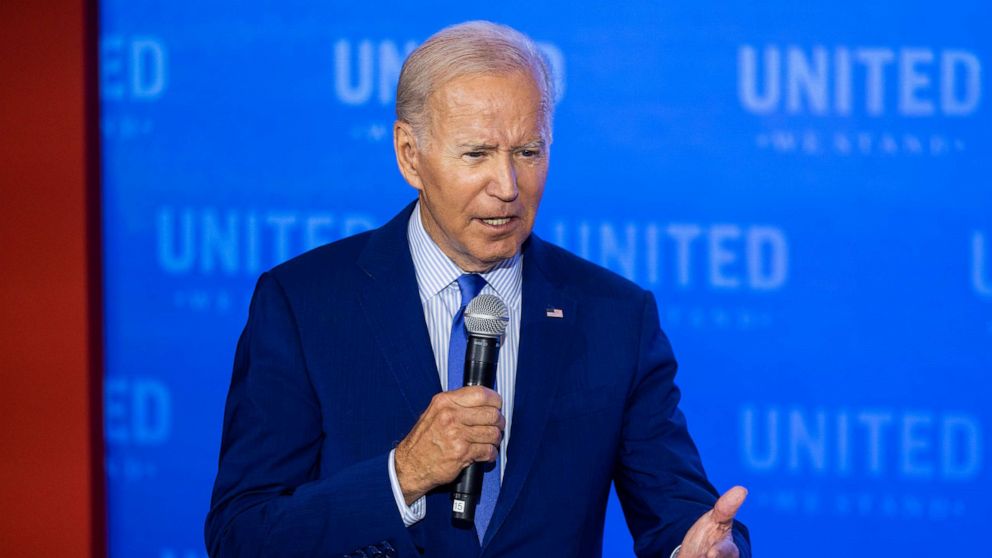Other Presidents Fought Hate Crimes. No Other President Has Made It a Part of Their Political DNA.
A lot of people forget how far we have come as a nation in less than two years. When President Biden took office on January 20th, 2021, the United States was seeing thousands of its citizens die every day from a virus for which no widespread vaccine was available, with crippling results on our economy being one key result. Unfortunately, another result was an uptick in hate crimes against Asian-Americans. Hate crimes in general have been on the rise since Trump's campaign began, but they rose particularly quickly in 2020 and 2021 against Asian-Americans, much like other hate crimes as a result of Trump's rhetoric. He blamed "Kung Flu" and the "China Virus," and his ignorant and bigoted followers acted out against innocent Asian-American citizens, from elderly women to decorated war heroes and even NBA players.
President Biden, on the other hand, took immediate action to not only condemn, but prevent and prosecute such hate crimes. On day one, he signed an executive order to remove discriminatory and incendiary language from the government websites Americans relied on for information about the public health crisis. This was followed up by the COVID-19 Hate Crimes Act in May 2021. The primary focus was fighting the COVID-driven rise in hate crimes against Asian-Americans, assigning officials in the DOJ to complete expedited reviews of reported hate crimes. However, the bill also made long-term reforms to how the federal government prosecutes hate crimes, assigning officials in every attorney's office to investigate civil rights issues and increasing reporting mechanisms among other changes.
In March 2022, President Biden signed the Emmett Till Antilynching Act. Held up in the 116th Congress by Senator Rand Paul of Kentucky, the 117th Congress finally delivered and President Biden signed legislation making lynching a federal crime after more than 200 failed attempts in the past century. Even this landmark victory wasn't the end of the line in the administration's fight against hate crimes. In September 2022, the White House held the United We Stand summit to bring together activists from communities across America and bolster public and private commitments to fight against hate, building on the United Against Hate Campaign at the Justice Department.
Hate crimes are far from the only step President Biden is taking to protect civil rights, from signing executive actions on police reform to making Juneteenth a national holiday to the Justice40 Initiative and other pioneering environmental justice work to executive actions to promote voting, protect and expand reproductive healthcare, and expand LGBT2SQIA+ rights as well as the most diverse slate of judicial and executive nominees in American history. Most notable among them are Kamala Harris, the first black, Asian, and female VP; and Ketanji Brown Jackson, the first black woman to serve on the Supreme Court. After all, in spite of the smear campaigns that emerged at the outset of President Biden's campaign and have lingered since, civil rights was the primary reason President Biden got involved in politics in 1971.
However, fighting hate crimes will always hold a special place in the annals of the history of the Biden presidency as they are written. It was the Charlottesville "Unite the Right" rally and attack, and in particular Trump's "very fine people on both sides" response to the hate-fueled violence, that prompted Biden to come out of semi-retirement and run for president in April 2019. In short, other presidents (most notably Lyndon B. Johnson and Barack Obama) fought hate crimes. However, no president has made it a part of their political DNA, at least not until our current commander in chief.

Comments
Post a Comment